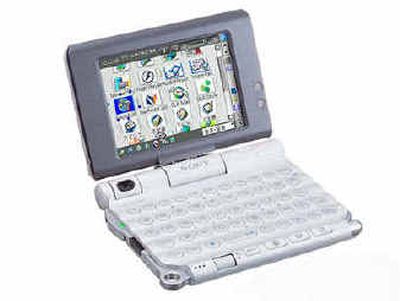Sony’s decision could spell end of line for PDAs

Sony said earlier this month that it plans to stop selling its Clie personal digital assistants in the USA — a big blow for the already shrinking PDA market.
A new line of Clies planned for the fall will be sold only in Japan. Sony said that it is focusing instead on its cell-phone business.
Sony’s withdrawal from the once-booming market — which it entered with great fanfare in 2000 — shows how quickly PDAs are flaming out, technology analysts say.
PDAs, or personal digital assistants, were one of the hottest products of the tech boom. Manufacturers couldn’t keep up with demand for the handheld computers, which store phone numbers, calendars, work tools and games, and convert handwritten notes into typed text.
But sales have been falling since 2001, clobbering PDA companies.
Among the reasons for the decline: Cell phones have gained many PDA-like features and many consumers are choosing to carry one of these “smart” phones instead of a phone and PDA. Also, PDA owners don’t upgrade. Customers who buy a PDA usually stick with it until it breaks and the market for high-end PDAs is saturated.
Iraq wants to raise cyber flag
The international organization that manages Web domains on the Internet has been asked to approve one for Iraq. Iraq’s media commission wants the Internet Corporation for Assigned Names and Numbers to approve an .IQ domain to allow Iraqis to stake a “virtual flag” in the worldwide Internet community, USA Today reported.
The chairman of the National Telecommunications and Media Commission said approval would be “an important tangible and symbolic milestone for this nation.” A survey cited by the U.S.-led administration in Iraq found about 6 percent of Iraqis say they have Internet access, but fewer than 2 percent use it.
Evolving cells
What will those cell-phone companies think of next?
• Some Nokia handsets, for example, now offer “wave messaging.”
Users of the upcoming Nokia 3220, slated for release this fall, must buy a special shell that snaps onto the phone. Users can then send a short message that, instead of going to another phone, is flashed on and off by 12 orange LED lights on the back of the phone shell.
Wave the phone back and forth, and a motion sensor tells which lights to fire. Done correctly, the message appears to be floating in space, bright as the stars.
Wave messaging certainly can leave a lasting impression, particularly if you’re in a nightclub and want to impress someone across the room.
• Japan is one of the best places to spot cell-phone trends in the making. Its fiercely competitive mobile operators routinely stuff their handsets with features that range from the functional (bar-code readers) to the frivolous (software that turns a cell phone into a controller for model racing cars).
Most of these features are offered only in Japan, and many will never make the leap across the Pacific.
One of the most intriguing new features available in Japan is in-phone television tuners. Two Japanese handset makers have put out TV tuner-equipped phones, both sold by Vodafone Group’s Japan unit. Toshiba and NEC both did a good job of keeping their TV-tuner phones compact and the TVs on both handsets are easy to use.
The big problem with both phones is reception, even with the handset’s antenna extended. Most channels are grainy, ghost-ridden and often indecipherable.
Opera wins award
The U.S. edition of PC World magazine has named Opera as the best Web browser, calling it “a fleet-footed package that provides innovative ways to view, analyze and store Web pages” in its June issue.
Opera includes a free e-mail program with a spam filter, a reader for RSS feeds and built-in links to search Google. Here’s the free download: http://www.opera.com/.